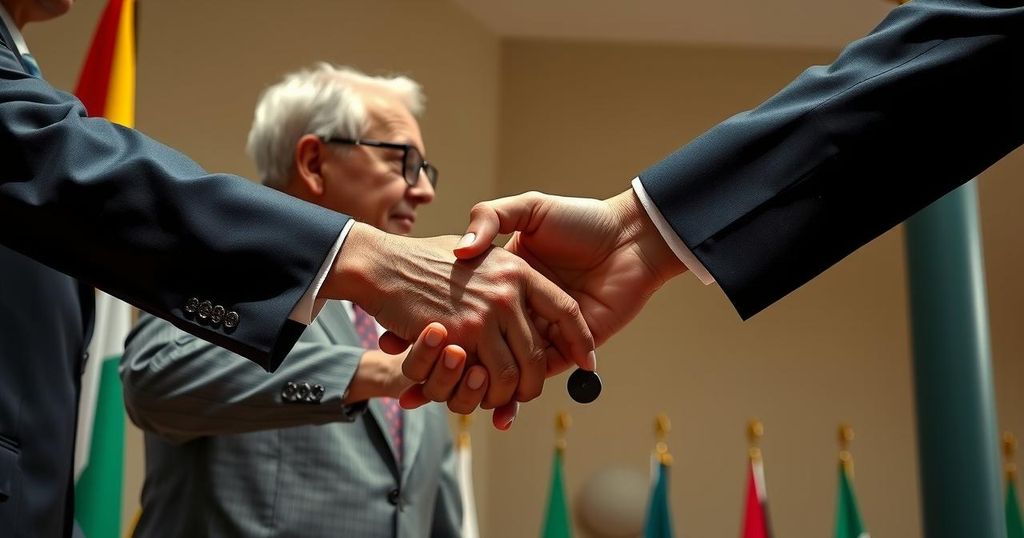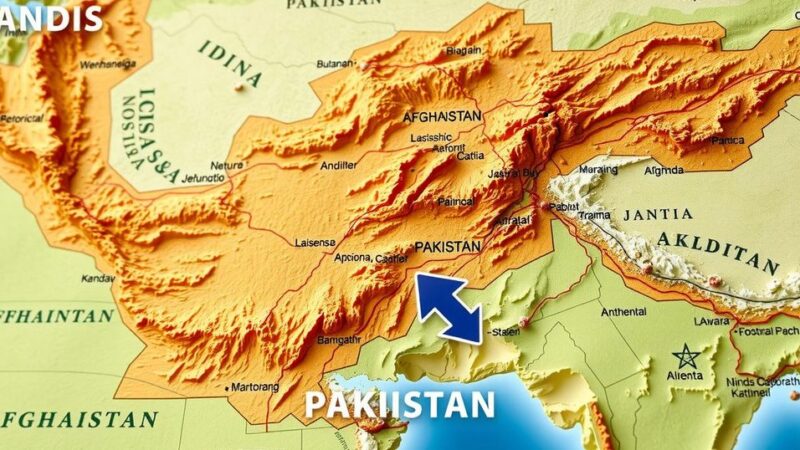Somalia and Ethiopia have decided to restore diplomatic relations after over a year of dispute, primarily triggered by Ethiopia’s agreement with Somaliland. The two nations’ leaders, following a surprise meeting in Addis Ababa, committed to enhancing bilateral cooperation through full diplomatic representation. The diplomatic rift had threatened shared security efforts against al-Shabaab, and recent negotiations suggest a willingness to resolve differences and engage in cooperative efforts going forward.
In a significant diplomatic development, Somalia and Ethiopia have agreed to restore their diplomatic relations after a year-long rift. This decision was announced following a surprise visit by Somalia’s President Hassan Sheikh Mohamud to Addis Ababa. Both nations committed to enhancing bilateral relations through the reestablishment of diplomatic representation in their respective capitals, marking a positive shift in their historically complex interactions.
The rift originated from Ethiopia’s controversial agreement with Somaliland, a self-declared independent region, which Somalia viewed as an attempt at territorial annexation. The memorandum allegedly granted Ethiopia port access in exchange for recognizing Somaliland’s independence. This led to strong reactions from Somalia, culminating in threats of conflict and the potential withdrawal of Ethiopian troops from peacekeeping efforts against the al-Shabaab militant group.
Despite the previous tensions, Somalia’s officials have expressed some acceptance of Ethiopia’s need for port access. However, they remain adamant that Ethiopia should not engage directly with Somaliland or use Somali territory for military installations without consent from the central government. Recent talks facilitated by Turkish President Recep Tayyip Erdoğan have resulted in a commitment to resolving differences through dialogue.
The easing of relations is crucial not only for diplomatic reasons but also for regional security against threats such as al-Shabaab. The Somalian ambassador mentioned the intention of implementing a “one-door policy,” which would require Ethiopia to negotiate with Somalia before proceeding with engagements involving Somaliland. This reflects a desire for cooperative dialogue and a united front against common challenges.
The recent agreement to restore diplomatic relations comes after a significant period of strain between Somalia and Ethiopia, triggered by Ethiopia’s agreement with Somaliland. This included contentious issues regarding territorial recognition and military presence, affecting security cooperation in combating militant threats. The background of this conflict stems from Somaliland’s declaration of independence in 1991 and ongoing tensions regarding sovereignty and regional security in the East African context.
In conclusion, Somalia and Ethiopia’s agreement to restore diplomatic ties marks a critical step in addressing past grievances and enhancing regional collaboration. The diplomatic thaw following mediated talks signifies potential progress in stabilizing relations and establishing a framework for dialogue. Navigating these complex dynamics will be essential as both nations seek to collectively confront security challenges posed by militant groups and foster peaceful coexistence.
Original Source: www.theguardian.com







